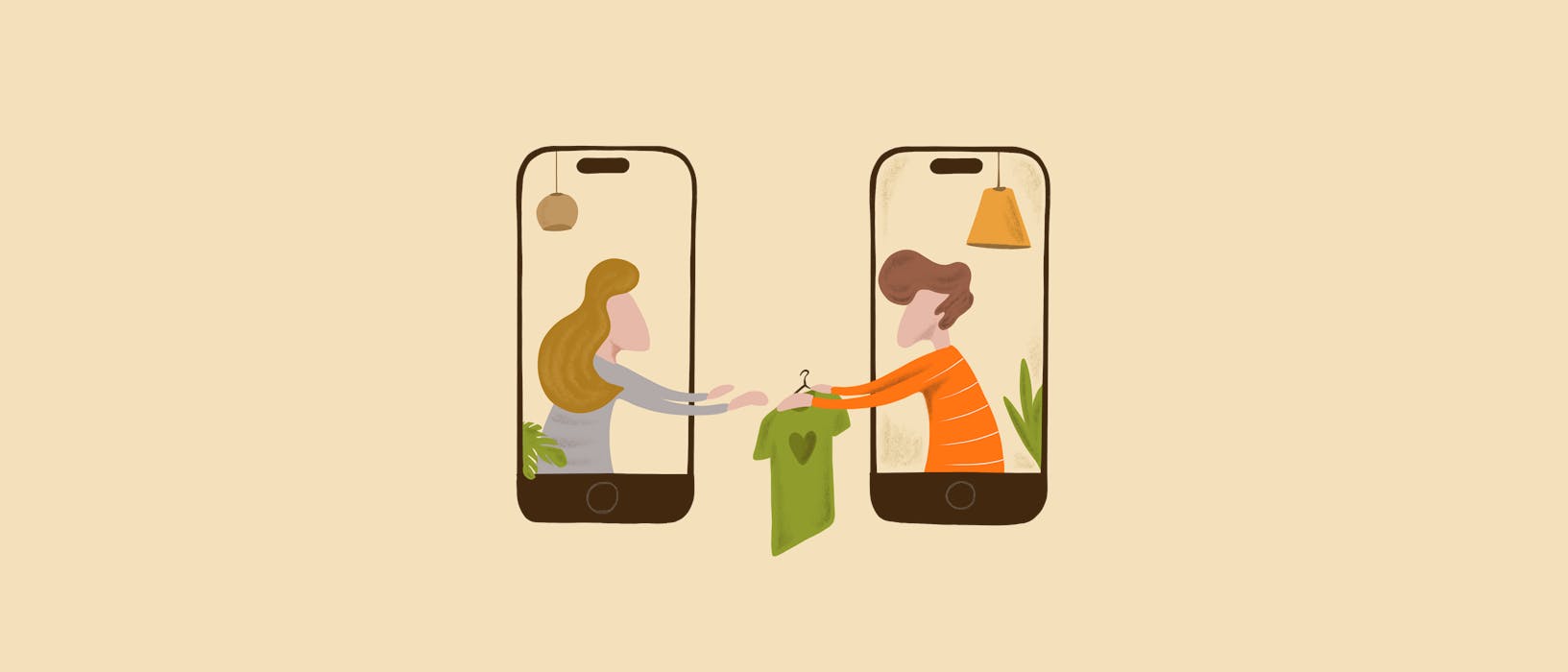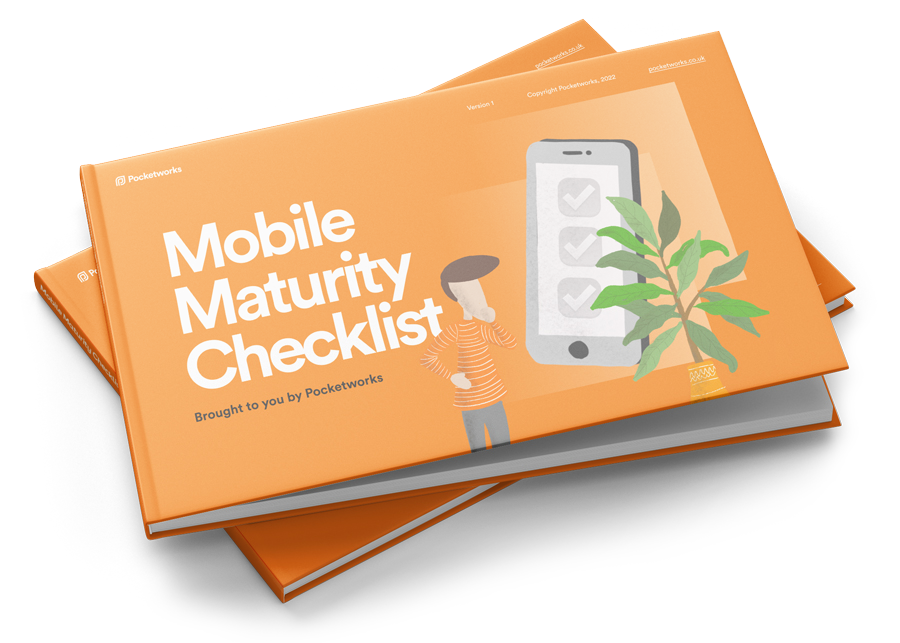At a time when environmental concerns are growing, mobile apps are playing an unexpected role in enabling behavoiur change and powering the circular economy.
In a recent talk, I explored how apps are helping people repair, reuse, share and resell. These behaviours were once offline, informal, or inconvenient. In this post, I’ll share some of the key ideas and reflections.
If you want my talk slides from Re:Generation Earth, grab them here.
I'll highlight some key points below.
Our digital habits need a kick
Digital technology emissions are now higher than the entire aviation industry.
For decades, most products and services have followed a linear model: make something, sell it, move on.
This mindset hasn't just affected physical products, but it's also shaped how many digital products were designed; they prioritised growth, speed and convenience over longevity, reuse or shared ownership. The goal was always the next transaction.
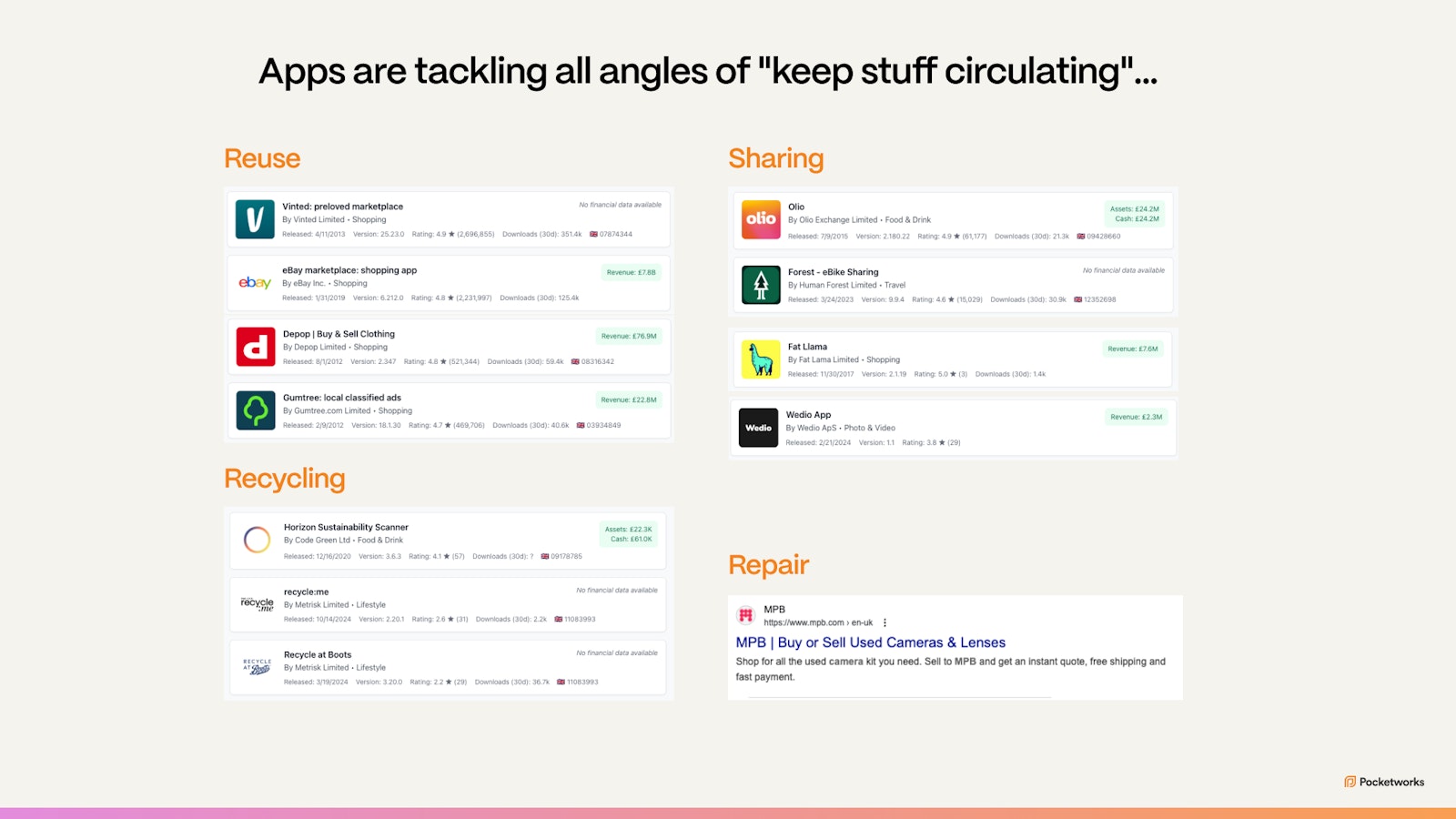
But there are a growing number of impactful apps that help consumers with newer, more sustainable behaviours. Today, with rising waste and depleting resources, individuals and businesses are pushing harder to create consumer value and sustainability.
How apps like Vinted and Olio are normalising reuse
A new generation of apps is changing behaviour. Not by lecturing, but by reducing friction.
Think of Vinted, which makes reselling clothes feel fun and social. Or Olio, which helps neighbours share surplus food. Or Too Good To Go, which gives businesses a way to profit from food waste rather than throw it away.
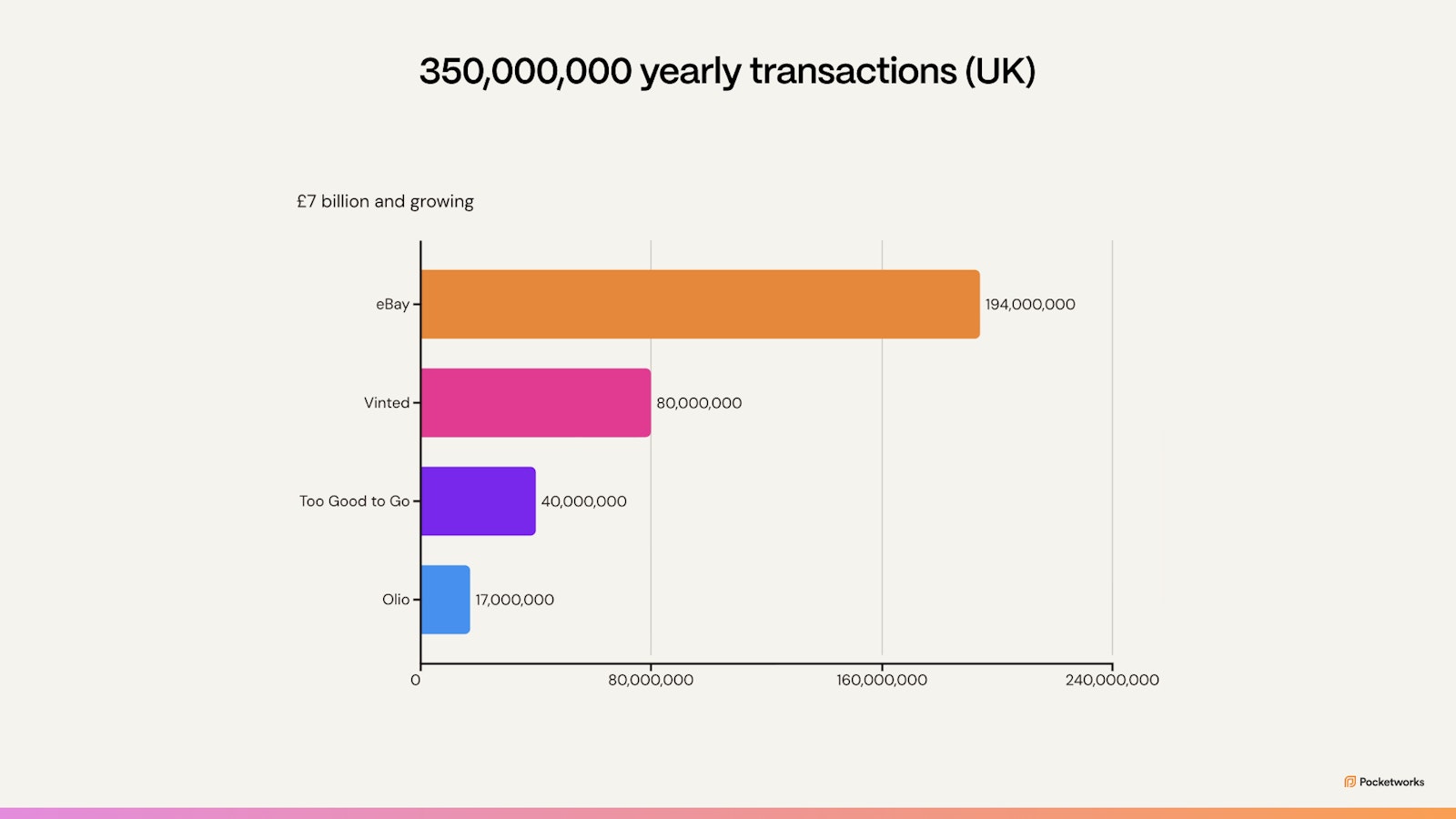
These aren’t just nice ideas. They’re digital infrastructures for circular models, keeping products and resources in use for longer.
But making it work isn’t trivial. Trust, logistics and community matter just as much as UI. These apps succeed because they solve real-world problems with care and convenience.
Oh, and if you want some food for thought about overcoming the challenges of developing mobile apps, check out our Badly Drawn Mobile guide.
What this means for your product team
You don’t need to launch the next Depop to make a difference. You might look at your existing services and ask:
- Are we helping people get more life out of what they already own?
- Could we design features that reduce waste or encourage sharing?
- How might circular principles unlock new value for our customers?
If you decide to develop an app, the deck contains some interesting insights that can help you:
- It pays to start small
- Beware of hidden app development costs
- Treat your app as a mini-business
- Invest in usability
- Minimise carbon emissions in your digital product development
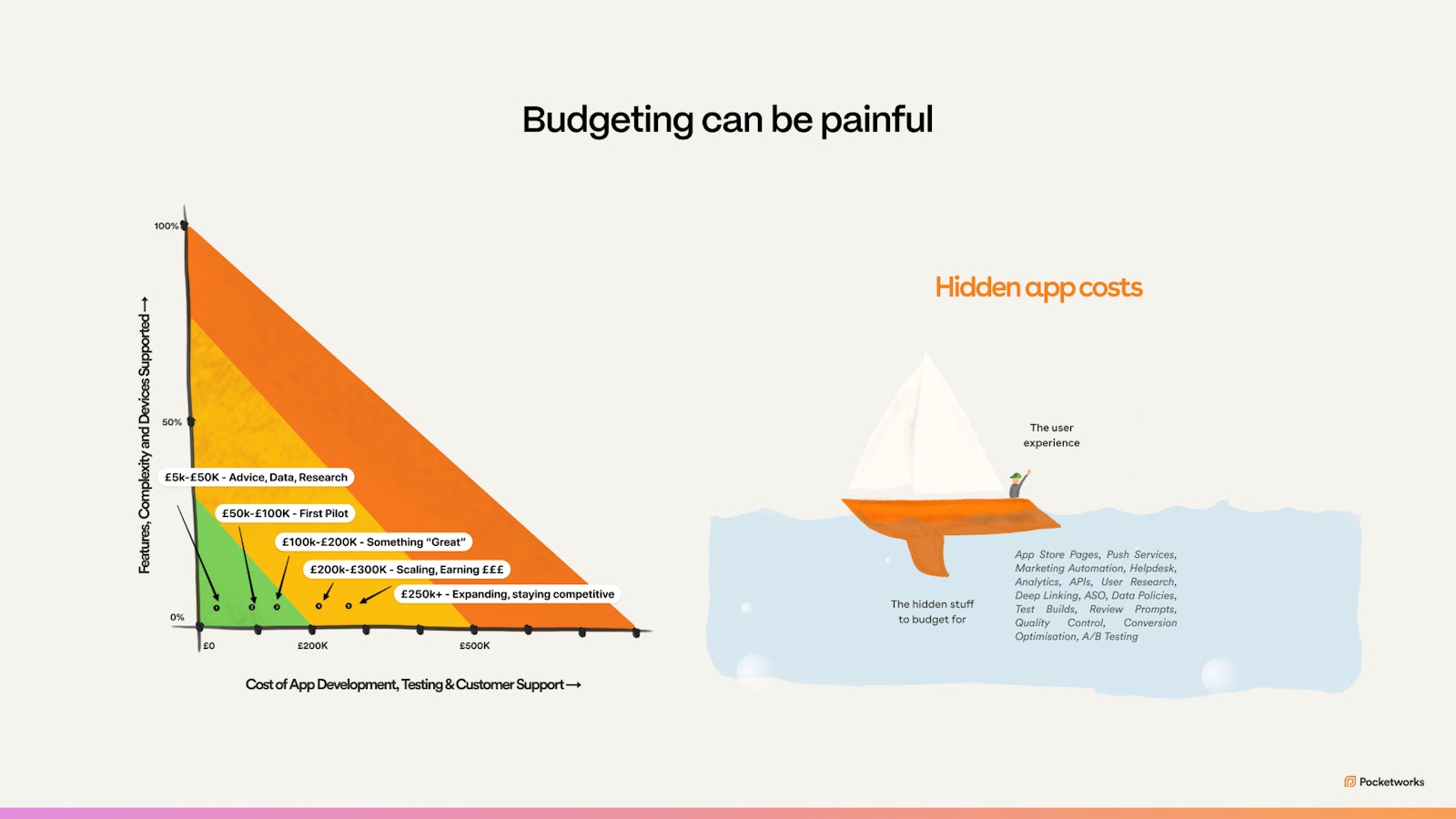
Download the slides
Grab the deck here, and feel free to connect on LinkedIn if you have questions or would like to chat about sustainable apps.
